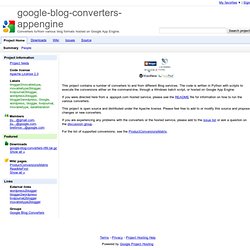

Meet the Future of Google Maps. Offline mapping for Android phones, Street View for nature trails and 3D Google Earth maps are all improvements coming to Google Maps in the near future.

The three new features were unveiled by company executives at a press event at the company's San Francisco offices. Offline mapping will become a part of Google's "own global base map" and offer hi-res navigation without needing a WiFI or 3G or 4G connection. To use the feature, users will have to select the area they plan to visit before going offline, then download the map to their device. The familiar GPS tracking blue dot will still be there to help with navigation. Street View for walkable locations will take the popular feature beyond the streets, railroads and rivers that have already been covered. 3D Google Earth mapping also comes with the introduction of a new user interface called Tour Guide.
Android. Youtube. Google+ How Jimmy Kimmel Makes up to 2 Million Annually via YouTube. Nighttime talkshow host Jimmy Kimmel is the latest mainstream performer who's found it possible to make a mint without solely relying on traditional broadcasting and promotional channels.

His solution? YouTube. Kimmel's channel, called JimmyKimmelLive, features clips and recaps — typically running under five minutes each — from every episode of the comedian's popular late-night talkshow. Kimmel's channel has more than 300,000 subscribers and many of the videos have acquired millions of views on top of his substantial broadcast television audience on ABC. It is YouTube's 98th-most-viewed partner channel of all-time, according to site information. For Kimmel, the double-dipping is paying off — his YouTube channel generates between $1 million and $2 million annually, "a person close to the show" tells The Wall Street Journal. In December, the comedian Louis CK offered his most recent standup performance video for download from his website for just $5.
Google Extends Its Reach With Free Gmail Voice Calling. How to Find Anything in Your Gmail. Blog-converters-appengine - Converters to/from various blog formats hosted on Google App Engine. This project contains a number of converters to and from different Blog services.

The code is written in Python with scripts to execute the conversions either on the command-line, through a Windows batch script, or hosted on Google App Engine. If you were directed here from a .appspot.com hosted service, please see the README file for information on how to run the various converters. This project is open source and distributed under the Apache license. Please feel free to add to or modify this source and propose changes or new converters. If you are experiencing any problems with the converters or the hosted service, please add to the issue list or ask a question on the discussion group. For the list of supported conversions, see the ProductConversionsMatrix.
Google Will Start Country-Specific Censorship for Blogs. Google figured out Twitter's trick for avoiding universally censoring content weeks ago, but it managed to go unnoticed — for a while.

That is, until TechDows wrote about Blogger's plan for country-specific URLs Tuesday. At some point "over the coming weeks," Google's Blogger will begin redirecting users to country-specific domain names — think Google.fr in France rather than Google.com — to avoid universally removing content that would not be tolerated in specific jurisdictions. A Blogger support post, "Why does my blog redirect to a country-specific URL? ," last updated Jan. 9, explains that Google is using the method to limit the impact of censored content. Readers will be redirected to sites with their own country's domain name when they try to visit blogs recognized as foreign, as determined by their IP addresses. "Over the coming weeks you might notice that the URL of a blog you're reading has been redirected to a country-code top level domain, or "ccTLD. "